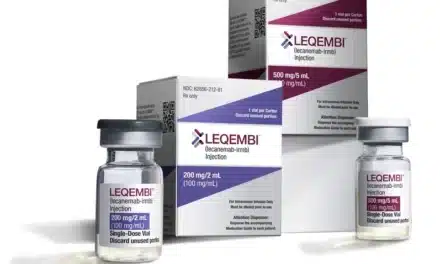On Oct 25, the FDA approved GE Healthcare’s Vizamy (Flutemetamol F18 injection), a radioactive diagnostic agent for PET imaging of the brain to estimate beta amyloid neuritic plaque density to help assess Alzheimer’s disease. According to the manufacturer, it allows for color images of the brain that allow readers to spot the plaques that are a hallmark of Alzheimer’s; those with neurological issues that are screened and show little plaque can be assessed for other forms of dementia.
“Many Americans are evaluated every year to determine the cause of diminishing neurologic functions, such as memory and judgment, that raise the possibility of Alzheimer’s disease,” said Shaw Chen, M.D., deputy director of the Office of Drug Evaluation IV in the FDA’s Center for Drug Evaluation and Research. “Imaging drugs like Vizamyl provide physicians with important tools to help evaluate patients for AD and dementia.”
Vizamyl is the second diagnostic drug available for visualizing beta amyloid on a PET scan of the brain. In 2012, FDA approved Amyvid (Florbetapir F 18 injection) to help evaluate adults for AD and other causes of cognitive decline.
Vizamyl’s effectiveness was established in two clinical studies comprised of 384 participants with a range of cognitive function. All participants were injected with Vizamyl and were scanned. The images were interpreted by five independent readers masked to all clinical information. A portion of scan results were also confirmed by autopsy.
The study results demonstrate that Vizamyl correctly detects beta amyloid in the brain. The results also confirm that the scans are reproducible and trained readers can accurately interpret the scans. Vizamyl’s safety was established in a total of 761 participants.





